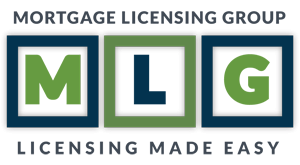A Simple Guide to Getting Your Mortgage Broker License in 2022
 With the new year kicking off, many individuals are setting personal and professional goals for 2022. Mortgage brokers will be looking to add to their existing staff of qualified professionals.
With the new year kicking off, many individuals are setting personal and professional goals for 2022. Mortgage brokers will be looking to add to their existing staff of qualified professionals.
Many people are now considering a future in the mortgage broker industry by getting a job with a mortgage broker. After all, all indicators point to predictions of a robust year in real estate, which means mortgage brokers will be very busy, too.
What is a Mortgage Broker?
A mortgage broker is a firm that works with lenders and potential homebuyers who may be looking for a mortgage. They essentially function as financial advisors that specialize in mortgages. Experts working for mortgage brokers can find a mortgage and rate that works within the homebuyer’s budget in this capacity. Often, their knowledge can result in the identification of trustworthy lenders that offer the best mortgage rates, which can save you tons of money throughout the life of your mortgage. Mortgage brokers often have mortgage loan originators and mortgage loan officers on staff to ensure that they can provide full service for their clients.
Why Do Mortgage Brokers Need a License?
Many individuals who work in a mortgage broker company require a license, but mortgage broker firms also need a license. The reason behind licensing procedures for this industry is to ensure that mortgage brokers meet all applicable federal and state laws related to their work as a mortgage broker. The licensing criteria are often rigorous to ensure that there are high standards of ethics and performance for individuals who work in this industry. Essentially, mortgage brokers and most of their employees need a license due to access to financial data, sensitive personal information, and the ability to influence decisions.
The Process of Obtaining a Mortgage Broker License
As stated, the criteria to get a mortgage broker license are rigorous. You have to complete all of the requirements through the Nationwide Multistate Licensing System and Registry (NMLS). These requirements may vary depending on the state in which you would like to practice, but many are uniform across the nation. Common requirements include:
- Meeting any state licensing requirements, such as applying for a license or transition of an existing license. The State Licensing Requirements page on NMLS can provide information about mortgage broker licenses.
- Completing a company account requires a form through NMLS. This account is required to apply for a state license, register, or transition an existing license. The Company Account Request Form is used to complete this process.
- Completing the Company Form, or MU1, or transitioning an existing license. Individual forms for control people, direct and indirect owners, executive officers, branch managers, and qualifying individuals may also be required.
- Completing the Brach Form, or MU3, is required to apply for a state license, registration, or transitioning an existing license for a specific branch location when the company form is complete.
- Securing a mortgage broker surety bond: Mortgage brokers are required to post a surety bond. This bond works as an instrument that protects the state in which you operate and your customers in the event that you do not perform your job with competency and integrity. A surety bond serves as a contract that guarantees the broker will follow any relevant contractual agreements, laws, and regulations. If the broker fails to do so, the bond requires the insurer to pay the customer or regulatory agency in the amount of a claim. The insured individual then repays that amount. Essentially, the bond serves as an external financial guarantee that financial compensation can be sought if the broker fails to uphold their professional duties.
- Additionally, suppose the mortgage broker intends to employ mortgage loan originators. In that case, they must also review the requirements for doing so, including the Professional Standards, Creating Relationships and Sponsorships, and state licensure requirements for mortgage loan originators.
While these processes outline the general steps to achieving a mortgage broker license, the specific requirements may vary by state. Before setting out on a path to get your mortgage broker’s license, you will want to determine the specific requirements in your state.
The Mortgage Licensing Group, Inc. is a full-service mortgage licensing firm headquartered in Southern California that is recognized throughout the industry as an experienced and reliable service provider. Established in 2006, our company has been at the forefront of the ever-changing rules and regulations, helping alleviate the often-daunting task of meeting our clientele’s diverse state licensing requirements.

